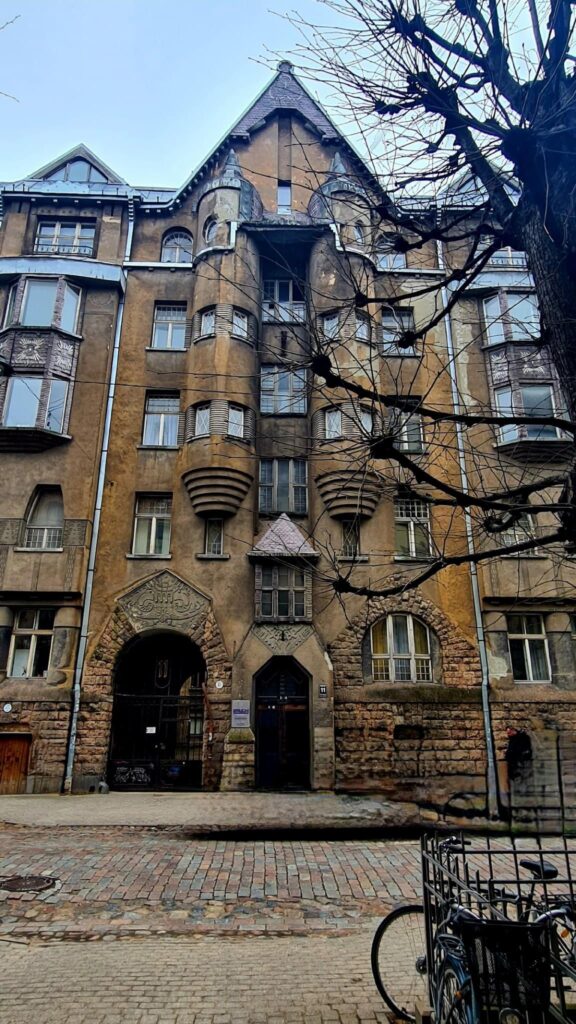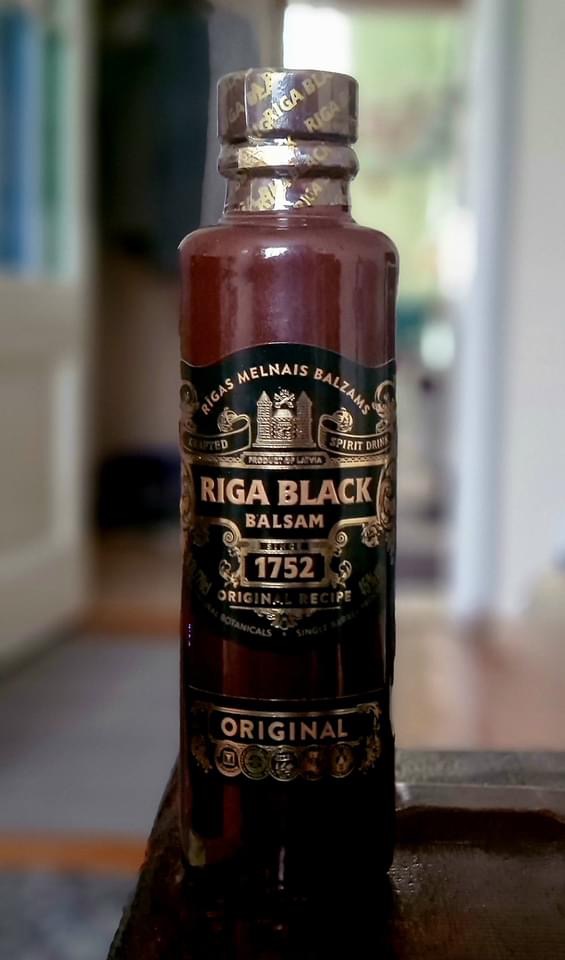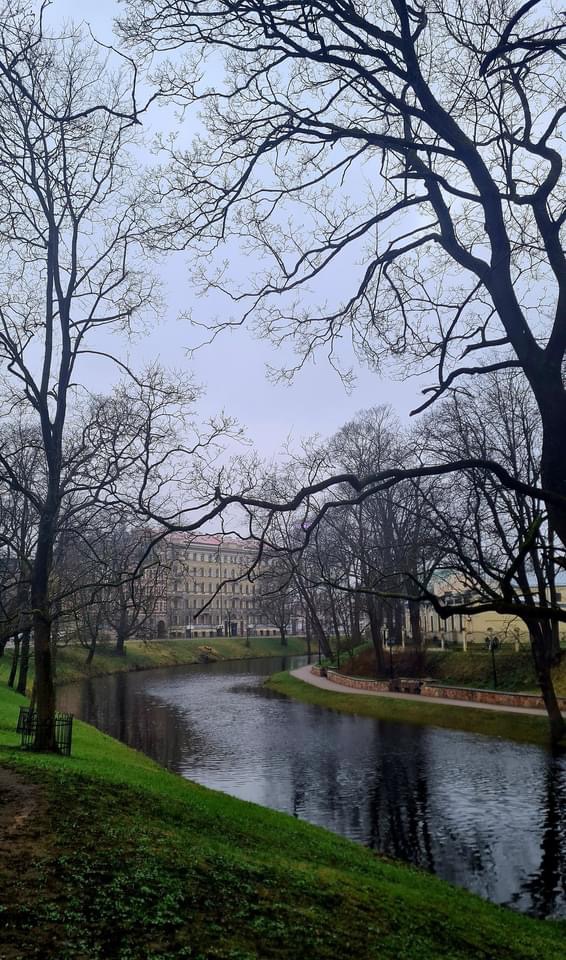April 20, 2024
Riga is a charming maze of narrow and crooked cobblestone streets, filled with a mixture of architectural styles that include Nordic, Gothic, Renaissance, Baroque and Art Nouveau, the latter making up about a third of all the buildings in the centre of Riga, making Latvia’s capital, the city with the highest concentration of Art Nouveau architecture anywhere in the world. There also seemed to be a propensity of candlestick makers and barbers, a symbiotic relationship of wick growing and trimming; “the usual please Alexandr’s, just a little off the top”. These alleys periodically open up to large, colourful plazas that showcase the city’s religious and historical gems. I mapped out my circular route to view the exquisite churches, wanting to keep things Orthodox. Located in the city centre, The Corner House is a historic building that served as the Soviet KGB’s covert headquarters in Latvia from 1940 to 1941 and from 1944 to 1991. It was so hidden that I was unable to locate it; however, at one point, I did notice daffodils in vases on every café table that were slowly turning. I had chosen my apartment carefully. It is strategically located adjacent to the sprawling Central Market, Europe’s largest, and notably converted from purpose-built German Zeppelin hangers constructed in the 1920s, five of only nine remaining in the world. The market incorporates Neoclassicism and Art Deco styles. It is 72,300 square meters wide and has more than 3,000 stands, some of which are outside the pavilions. I read this online, and I assume it’s not all hot air. I sampled a lot of the inexpensive local cuisine throughout my visit. Keeping with the Zeppelin theme, cepelinai is named after the shape of potato dumplings, which resembles the airship. They are made from grated and riced potatoes, stuffed with ground meat, and topped with sour cream and bacon bits. Creamy soups are served in eatable bread bowls by Zuppa Good. I went with the classic thick and sour Russian soup, Soljanka. Despite their unappealing sound, grey peas are a traditional Latvian dish that has a wonderfully nutty flavour and a slightly chewy texture. The addition of caramelised onion and bacon is undeniably delicious. The restaurant franchise Lido serves inexpensive Latvian cuisine in the form of an IKEA food court-style canteen. Because it’s always busy, the trays are frequently refilled, and the food stays fresh. I had dinner at three different locations, and each offered a distinct meal in a setting with a different character. My excellent beefsteak with juniper and wine sauce (Lido doesn’t do “jus”) was “my grandmother’s secret recipe,” confided the chef with a knowing wink. Pete ‘Morpheus’ Mordi, an old colleague and friend, accompanied me on this portion of the journey. He graciously detoured from his Dublin to Copenhagen itinerary to partake in some Balkan benevolence. “I do not see coincidence, I see providence. I see purpose. I believe it our fate to be here. It is our destiny. I believe this night holds for each and every one of us, the very meaning of our lives.” – Morpheus. This time it was the juniper berry theme that continued, and off to Distillers Republic we went. This cosy underground micro gin distillery temptatiously offered a sampling paddle – was there a choice – of 5 meticulously crafted gins. Supplemented with splashes of Fever Tree, ice when advised and sipped to a back drop of ’80’s Indi-music…. this was a subterranean pitstop worthy of the occasion. As one might anticipate from the name and appearance of the bar, Piana Vyshnia (‘Drunk Cherry’) only serves cherry liqueur, which is served hot or cold. I had never seen anything like the cherry wallpaper, the wood barrels behind the bar or the crimson bottles that covered the entire ceiling and walls. Take note: the beverage was really potent. In Riga, they appear to prefer strong drinks. With a 10.1% ABV, Kapracis, a smoked black ale, was Guiness on speed. And no write-up would be complete without mentioning Riga Black Balsam, Latvia’s national drink. Black Balsam has been crafted in Latvia since 1752. Centuries of beverage production equate to an exciting bouquet from its 24 ingredients, whose secret combination is only known by a handful of employees. Baltic legend says it was initially made by a local pharmacist as a medicinal elixir for an ill Catherine the Great. This might be why it taste of Benylin but at 45% you soon stop caring. And what more could one want on these dark, stormy evenings in Riga? Sitting in a folk music cellar, enjoying Latvian meatballs with a sausage so thick it would make your eyes water; a drinking hole with an industrial garage theme or a ‘bar with a car’ (see photos); a spider’s web of tram lines that saw sleek modern trams ply the old town’s rails while toy-town trams from the 1960s ploughed a furrow through the new! Riga, what a fun place! To be continued…




